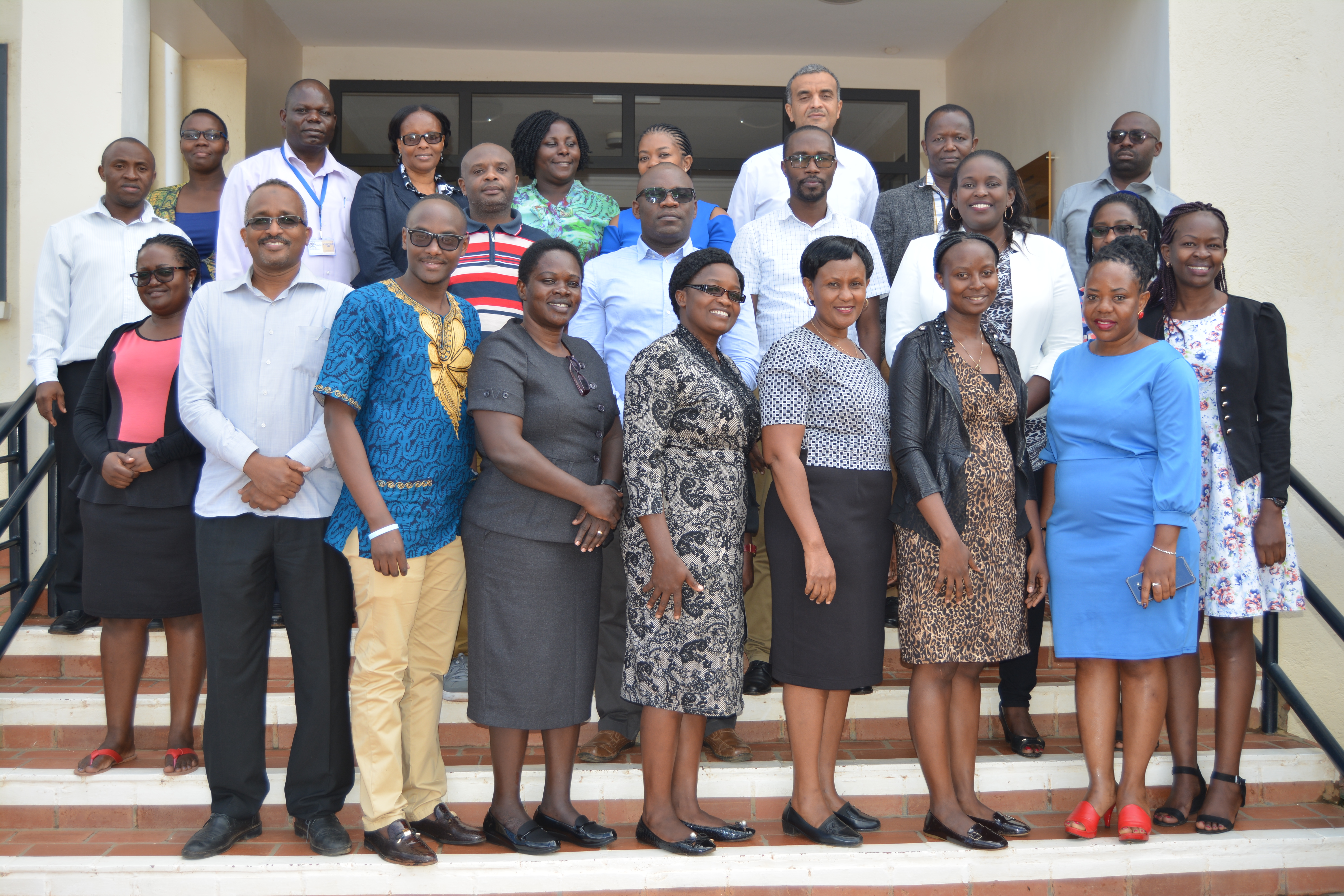EACCR2
About EACCR2-RMS
In January 2010, the European and Developing Countries Clinical Trials Partnership (EDCTP) funded the East African Consortium for Clinical Research (EACCR) to initiate a Reciprocal Monitoring Scheme (RMS) in Eastern Africa. This is an innovative practical and affordable scheme for strategic quality management of health research in Africa. The scheme provides mentorship for monitoring the quality and ethics of health research.
WHY RMS
- The scheme provides pragmatic ways of ensuring that trials are conducted in accordance with protocols and established standard operating procedures (SOPs); produced reliable data and accurate results; complied with relevant regulations and safeguarded the rights, safety and wellbeing of participants.
- It is an accessible regional pool of trained and experienced health professionals who monitor trials using standardized tools in mutual cross-site visits for strategic quality management and exchange of best practices as a planned part-time activity for each monitor.
How RMS Operates
The scheme built on the experience of researchers from the Kenyan Medical Research Institute (KEMRI)/ Welcome Research Program in Kilifi and the Uganda Virus Research Institute –International AIDS Vaccine Initiative (UVRI-IAVI) who have developed an in-house system for monitoring trials. The scheme is a partnership of 16 research and academic institutions in six African countries (Tanzania, Uganda, Kenya, Sudan, Rwanda and Ethiopia). The partner institutions nominated members to constitute the 25- member RMS who are periodically trained in monitoring workshops or refresher training courses. Experienced monitors are paired with new or less experienced monitors for ‘hands-on’ mentoring in order to increase and sustain capacity (See appendix A). A series of exchange monitoring activities are conducted by the monitors who are paired to conduct trials at institutions where they are not employed. A number of trials (vaccine trials, drug safety studies, epidemiological studies and longitudinal intervention studies) across Africa have been monitored and those planned to be monitored by the scheme (see appendix B).
In addition, consultative requests for monitoring services from Principal investigators (PI) are conducted at a fee. Activities of the scheme are coordinated by an experienced monitor and researcher, Dr. Annet Nanvubya who is based the EACCR secretariat at the Uganda Virus Research Institute in Entebbe. She liaises between monitors, research institutes and investigators to ensure that monitoring activities are conducted as planned. The RMS coordinator is responsible for developing monitoring tools, providing oversight and logistical support to Monitors.
Impact of Reciprocal Monitoring Scheme
- The cross-site collaboration of partner institutions has contributed to the strengthening of internal Quality Management processes which in turn has led to the improvement of the quality of Clinical Trials in Eastern Africa.
- The scheme has contributed to the development of practical and cost efficient on-site monitoring among member institutions.
- It has also contributed to the accelerated search of new or better drugs, vaccines and interventions to control the most targeted infectious diseases in East Africa such as TB, Malaria and HIV.
Sustainability plan
The scheme came up with the following sustainability
- Sharing of monitoring costs with study sites/Principal Investigators
- Conducting consultative services at a fee
- Minimize recruitment of fresh monitors
- Maximize the use of skills from 12 experienced Monitors trained by the scheme
- Promote in country monitoring to save on travel costs

EACCR2 Partners

